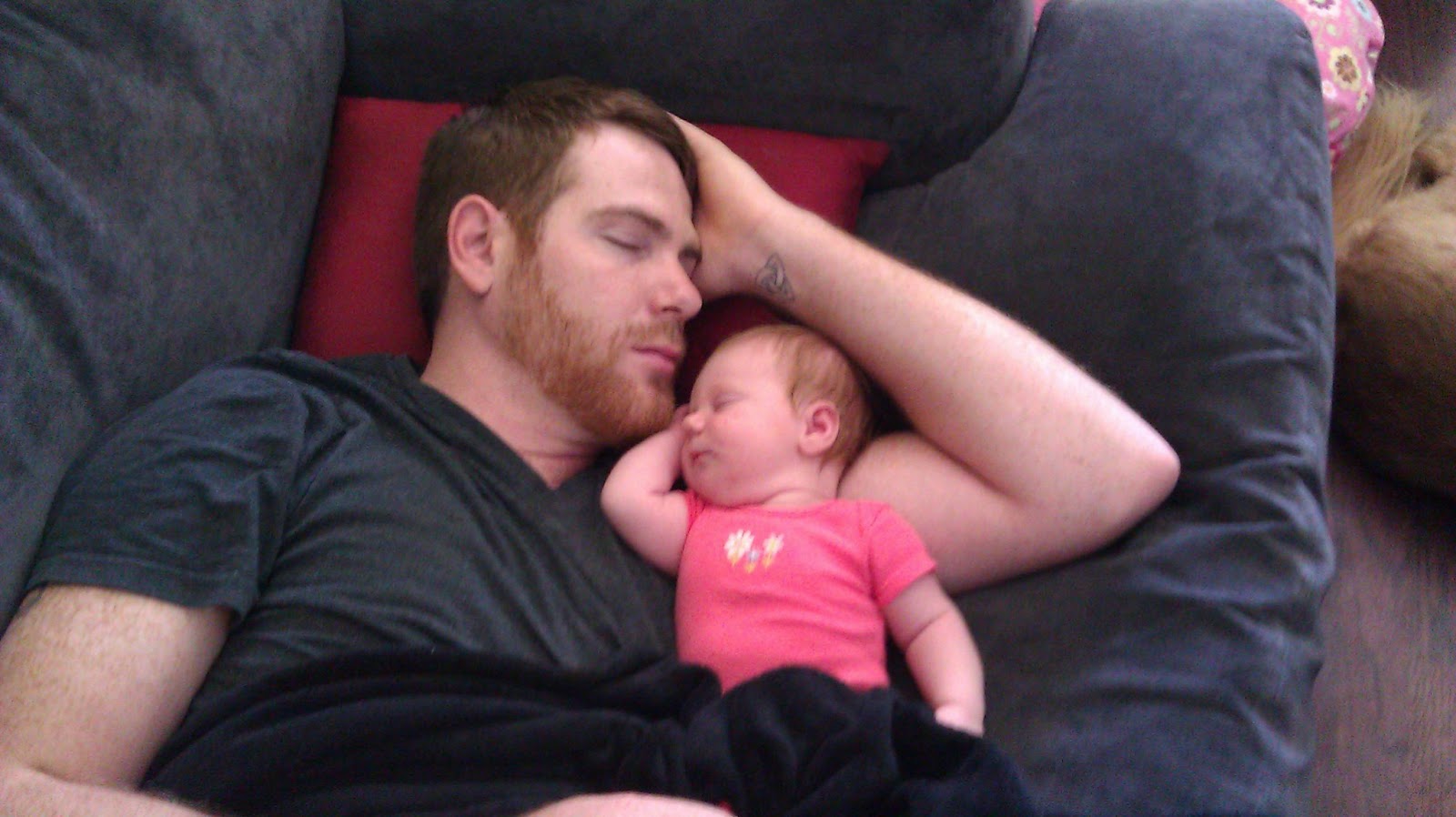In the mirror, though, I see Mr Bad Example. I see someone incorrigibly lazy, self-indulgent, quietly manipulative and in bad need of a shave. I see someone who can love his children to distraction - indeed, believes that they are the best thing that ever happened to him - while constantly thinking up new ways to get out of the house. Every evening, during the stressfest that is dinner-bath-bedtime, I fantasize about sitting in a pub quietly with a drink and a book. (When the family go away without me, that's what I do between 6.00 and 7.30 of an evening. Then I come back home, watch the telly by myself, go to bed early, sleep like a breezeblock. For a single man this sort of evening would make you want to top yourself. For me, it is the purest bliss.)
 |
| How To Be A Good Father To Your Baby Daughter |
I swear too much. I shout too much. Worse, I go from not shouting at all and talking in a very soft voice though an invisible fury barrier to shouting like a red-faced loon. All the books tell you that this is Very Bad Parenting Indeed.
I eat appallingly. (This paragraph has been prepared with the enthusiastic participation of Mrs Bad Example.) I don't go much on green vegetables and I adore refined sugars, especially whatever it is they put in Mars bars. And Mars bar ice cream. I am prone to defer to Mrs Bad Example on domestic matters, which (she tells me) is a disgraceful example to my son, who will grow up believing that only women cook proper meals. And I am unusually impractical in traditional male ways as well, being inept at all forms of DIY and liable, when things go wrong, to 'run around in circles like a headless chicken until someone else sorts it all out'.
(At this point she paused, poured another large glass of red wine and then continued her list of my inadequacies, which I pretended both to listen to and to write down.) I'm sure you could produce an equally illuminating and humiliating list about yourself.
But who gives a monkeys? As your child's first birthday party rages, as small children crawl and stagger around your house screaming and crying, as all the mums sit around eating cake and all the dads get quietly drunk, you know that you are at least good enough as a dad, and better than many, and that that's all that matters. You might almost say that all is for the best in the best of possible worlds, if some small person had not just come over to you and vomited on your trousers. To find out more, you can check out How To Be A Good Father To Your Baby Daughter.





